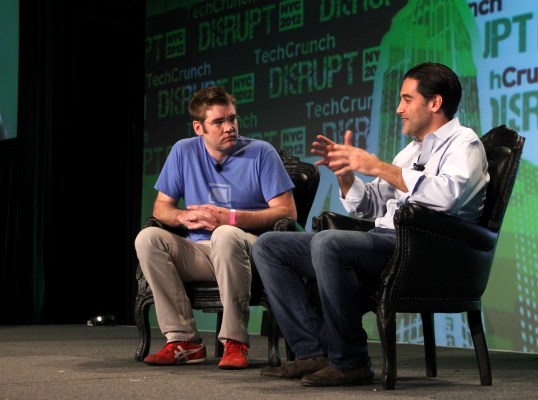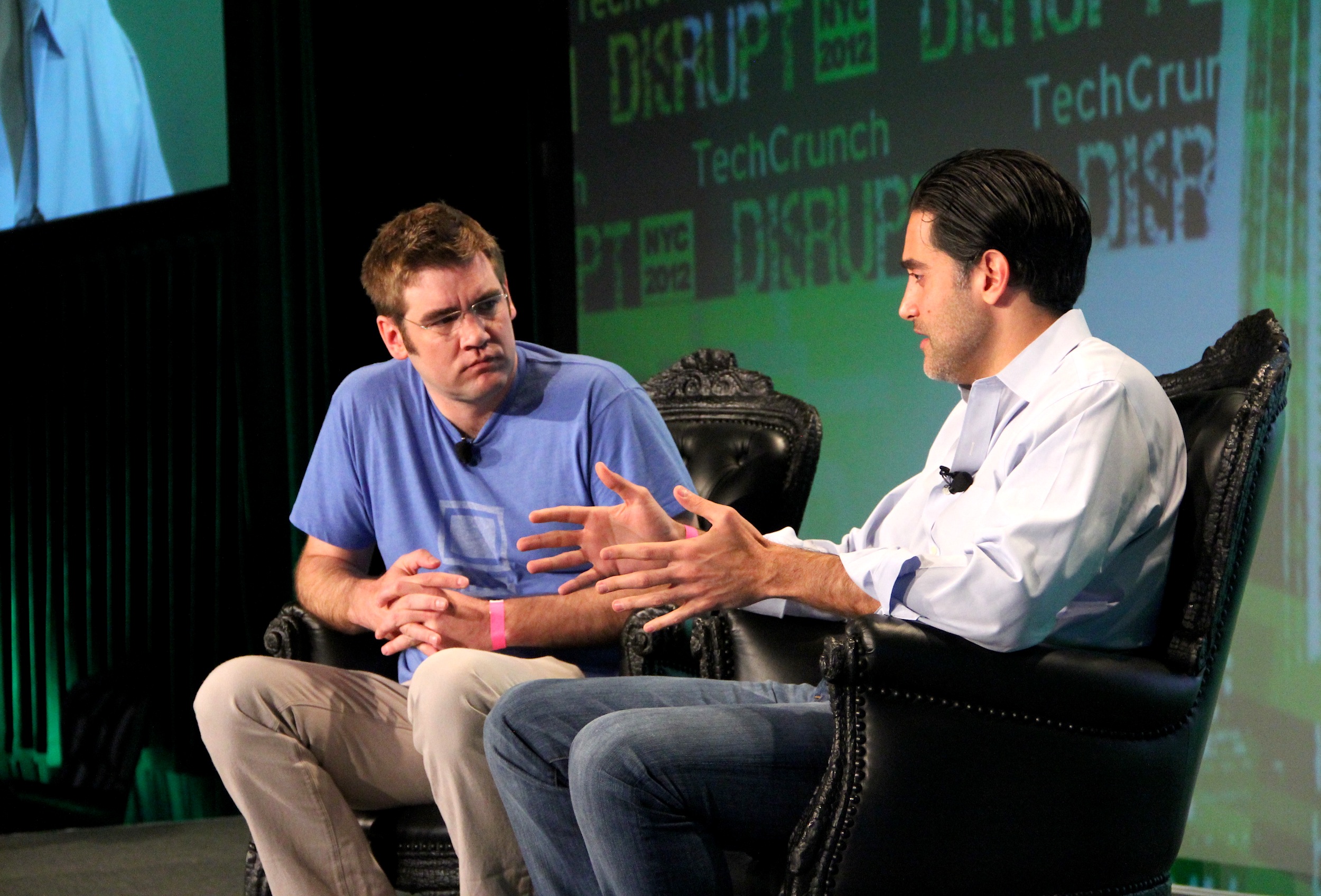This morning at TechCrunch Disrupt NY 2012, Chris Dixon, co-founder and partner at Founder’s Collective (and co-founder of SiteAdvisor and Hunch, acquired by McAfee and eBay, respectively), sat down with ZocDoc CEO Cyrus Massoumi to talk about ZocDoc’s road to success. The company, for those unfamiliar, is a professional booking platform for doctors. Users go online to search, find and book a doctor, dentist or other health care professional, and can even make same-day appointments thanks to ZocDoc’s real-time access to doctors’ schedules.
Although ZocDoc has now raised $95 million in funding to date, it didn’t necessarily have many early believers.
For a reminder of the kind of nay-saying that ZocDoc faced back in the beginning, this video from TechCrunch 40 several years ago should strike a chord with any entrepreneur who’s had their vision dismissed outright from industry notables. “Honestly, it would just never occur to me to go to any site to pick a doctor,” proclaimed Guy Kawasaki at the time. (Oops.)
ZocDoc didn’t win the TechCrunch competition – that was the year that Mint.com won, and perhaps deservedly so. But ZocDoc is proof that not winning doesn’t translate into failure by any means. And neither does bad press, as it turns out. Massoumi noted that while there were many great articles about ZocDoc post-launch, there were some negative ones, too. He recalled in particular when press called out ZocDoc for not getting a doctor search quite right. Why is it showing me doctors on the lower east side of New York, when I did a search on the upper east side?, people said. Meanwhile, recalls Massoumi, others said ZocDoc was “overly ambitious to think it could change the way people access healthcare in America.” (Ouch).
But the company kept their heads down, he says, and kept being persistent. Trying to grow their business during a poor economic environment also forced them to stay very lean. They raised a little money from another startup competition which helped them to finally launch in their first markets outside of New York (D.C. and San Francisco), thereby proving wrong those who said that ZocDoc wouldn’t really work outside of the city.
Massoumi also shared some tips he learned over the years in terms of growing the business. For starters, he said that it really helps to have people in the city they’re rolling out to. While not all startups have a large enough staff to do that, doing so cut the time to market in half, he said. Getting the right people in place to manage the roll-outs was very important, too. In fact, he advised startup founders to be especially conscious of the first twenty people they hire, as they set the tone for the business.
ZocDoc, now 260 people, up from 100 a year ago, puts an incredible emphasis on the hiring process. The entire management team spends half their time interviewing, said Massoumi, and he admitted he probably even spends more than that himself. And those hires have come from some surprising places, he added, recalling how ZocDoc has hired people they met on the plane while travelling and once, they even found an incredible waitress in Chicago and moved her out to New York. ZocDoc employees are also encouraged to refer people to the company and are rewarded with a new iPad if those people are hired.
Another focus for this morning’s chat had to do with why there aren’t many startups working in the healthcare space. “Most people don’t realize that healthcare is a $2.7 trillion dollar industry in the U.S.,” said Massoumi, but it’s been under-represented by startups. This is probably because many people have been burned in the past – likely due to a greater emphasis in solving problems for the patients instead of the doctors, he said. Having grown up around doctors, he remembers dinner conversations about the problems doctors faced in trying to deliver great care while also running an efficient business. It’s increasingly difficult for doctors to have a profitable business, he said.
Finally, Massoumi advised startups to work as leanly as possible. “Don’t have a crazy burn rate,” he said, be able to “afford to fail and iterate.”
As for ZocDoc itself, this advice has translated into the company’s continued growth. Earlier this month, ZocDoc rolled out to an 18th market in the U.S. (Tampa Bay). And just yesterday, it launched in its 19th market (Denver). With the coming changes to health care under the Obama administration, some 30 million new patients will be coming into the system, which will greatly impact the growing shortage of physicians in the U.S. “Access to healthcare is one of the greatest challenges to our generation,” said Massoumi. It’s a statement which other entrepreneurs could take as a call-to-action to help solve some of the problems in the industry. After all, we have enough photo-sharing apps for the time being.

